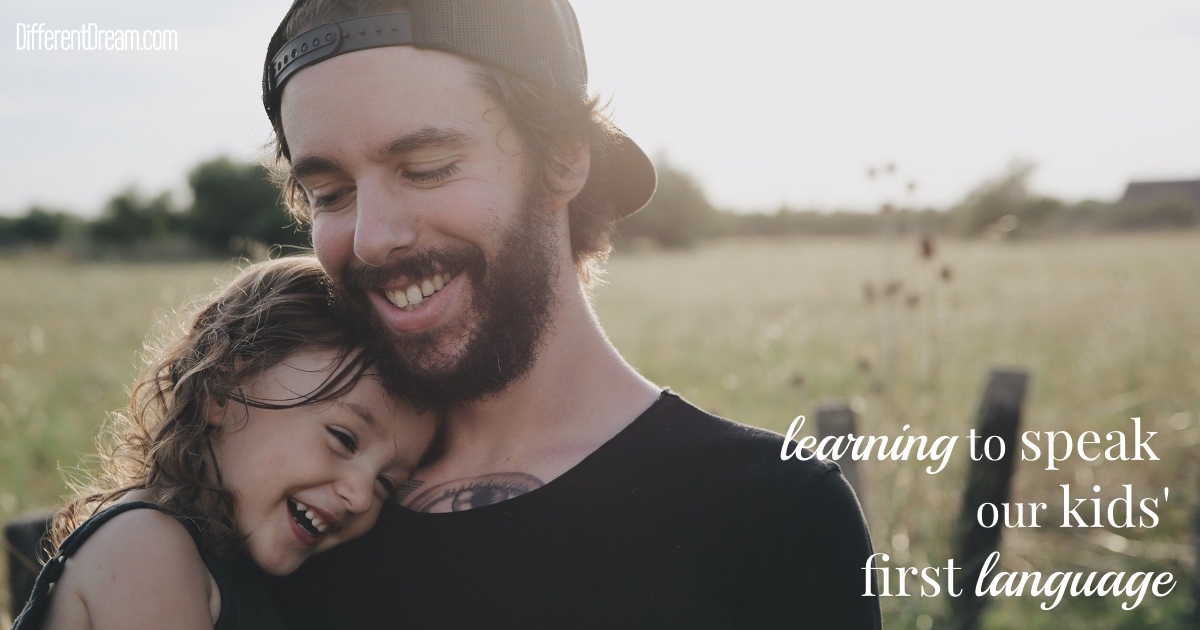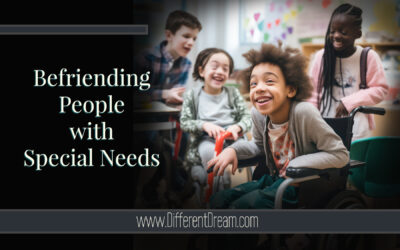Love Is a Child’s First Language

Love is a child’s first language. This truth is the title of the fourth chapter in Sharing Love Abundantly in Special Needs Families. The chapter explores two child development concepts that can help parents better understand how to express love to their kids with disabilities and special needs.
The first concept is attachment categories. Attachment equals love in mental health care jargon. Professionals in the field have identified 4 attachment categories to identify how very young children learn to love, or bond, with primary caregivers.
Secure attachment happens when the child has consistent, emotionally appropriate interactions with parents. Secure children feel empowered to explore the world as they develop and grow.
Avoidant attachment occurs when parents are unavailable or rejecting. As a result, children also avoid closeness and emotional attachment.
Anxious attachment is the result of inconsistent interactions with parents. Lack of consistency causes children to exhibit anxious and unreliable behaviors.
Disorganized attachment happens when contact with parents is so inconsistent and unpredictable that children are repeatedly disoriented or terrified. Their lives are so chaotic and their needs are so frequently unmet that they are unable to rely on or attach to anyone.
Many children with special needs develop avoidant, anxious, or disorganized attachment. Reasons include early, invasive medical treatment, separation from birth mother for medical treatment or adoption, repeated trauma, extreme sensory sensitivity, or unpredictable medical conditions like seizure disorders. Parents can use the love languages to fill these kids’ with the security they didn’t receive earlier.
The second concept is stages of cognitive development. This is a term used by educational psychologists to describe how thinking and learning develops in children. All kids go through these 4 stages in the same order, but not always at the same speed.
The sensorimotor stage runs roughly from birth to age 2. In this stage, children learn about the world by manipulating and observing physical objects.
In the pre-operational stage goes from age 2 to 7. At this age, children start using symbols while thinking, but they still need to manipulate symbols. They also asked lots of “why” questions and are very curious.
The concrete operational stage runs from about age 7 through age 11. This is where children begin to think logically in their heads. They can’t apply what they’ve experienced to unfamiliar situations because they can’t yet think abstractly.
The formal operational stage can start at age 11 and runs through adulthood. Some adults never reach this stage, which can only be achieved in an enriched and intentional environment. Those who reach this stage can think abstractly about things they haven’t personally experienced.
Many children with developmental delays or attachment issues progress through these stages slowly. By identifying what stage children are at, parents can speak their love languages in developmentally appropriate ways.
Chapter 4 of Sharing Love Abundantly is filled with the stories of families who have adapted and used the love languages with their kids who have special needs and disabilities. Assuring our children that they are loved is what parenting is all about!
Other articles in this series:
The Love Languages and Special Needs Families: A Good Combination
Basic Love Language Concepts to Ease Stress and Increase Joy in Caregiving Families
Threats to Caregiving Marriages and How To Fight Them
Fostering Communication and Connection Between Caregiving Parents
Determining the Love Language of a Child with Special Needs or a Disability
Ways to Speak Words of Affirmation and Quality Time to Kids with Special Needs
Speaking Healthy Physical Touch to Kids with Special Needs
Using the Love Languages with Siblings of Kids with Special Needs and Disabilities
Extended Family Members Can Use the Love Languages to Encourage Caregiving Parents
Communicating Your Child’s Love Language to Medical Professionals
Communicating Your Child’s Love Language to Educators
Do you like what you see at DifferentDream.com? You can receive more great content by subscribing to the monthly Different Dream newsletter and signing up for the daily RSS feed delivered to your email.
By Jolene
Jolene Philo is the author of the Different Dream series for parents of kids with special needs. She speaks at parenting and special needs conferences around the country. She’s also the creator and host of the Different Dream website. Sharing Love Abundantly With Special Needs Families: The 5 Love Languages® for Parents Raising Children with Disabilities, which she co-authored with Dr. Gary Chapman, was released in August of 2019 and is available at local bookstores, their bookstore website, and at Amazon.
Related Posts
How Do I Teach my Kids to Interact with People Who Have Disabilities?
Jolene gives practical pointers for people who ask, “How do I teach my kids to interact with people who have disabilities?”
Therapy is Not a Child’s Love Language.
Guest blogger Heather Braucher explains how she learned that therapy is not a child’s love language, even if it is a necessity.
Making an Autumn Sensory Fidget Box
Guest blogger Mark Arnold takes a journey to the magical world of making an autumn sensory box for his son with special needs.






0 Comments